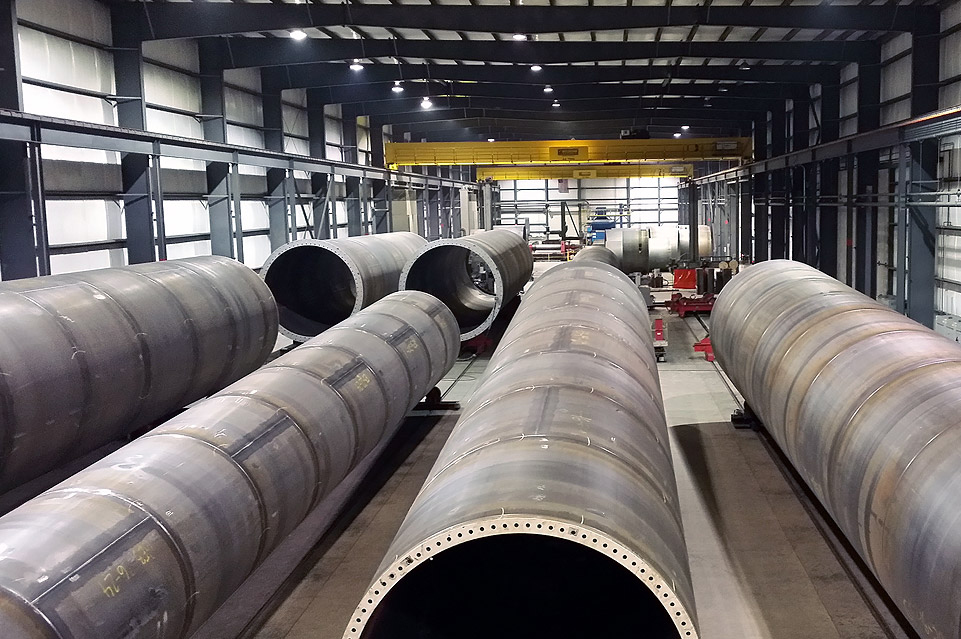While the 25% tariff could affect some US-based turbine tower producers, most towers used in the US are domestically produced and most steel plate used in those towers is also US-made.
The tariff may also hit manufacturers of steel-laden offshore foundations.
"[The tariff] is meaningful but not disastrous," said Make analyst Anthony Logan. "It should not be a deal-breaker."
According to Make, in the last two years sections for an average of 1,000 towers a year were imported. During that period, 6,800 turbines were installed and connected to the grid in the US, 2,700 of those in 2017.
Trump officially signed the steel tariff, on unfinished and semi-finished steel, on 8 March. He also signed a 10% tariff on imported aluminium.
Most US steel imports come from Canada, Brazil, South Korea, Mexico, Russia, Turkey, Japan and Germany.
Companies that make towers in the US include Vestas, Broadwind, Trinity, Ventower and Gestamp. About 20% of the cost of an installed turbine is the tower.
Steel imports from Canada and Mexico are excluded from the tariff, but only temporarily, creating uncertainty.
The length of the exclusion apparently depends on the ongoing talks over the North American Free Trade Agreement (NAFTA) and whether the president, an ardent protectionist, is satisfied with the progress.
Other countries that export steel and aluminium to the US may be able to negotiate exclusions, Trump said. The tariffs are certain to be challenged at the World Trade Organisation (WTO).
Vestas, which makes towers in Colorado, declined an interview but issued a statement: "The details of these tariffs will take some time to understand, but with Vestas' large domestic manufacturing and supply chain setup in the US, we are confident that we can remain highly competitive in the US and meet market demand.
"Considering the amount of steel in a wind turbine, however, we are of course not immune to increasing domestic or imported steel prices that may occur as a result of the proposed tariffs," the Danish manufacturer said.
Logan said on the eve of Trump signing the tariffs, steel suppliers were already being "coy" about pricing and deliverability and that prices were rising.
With a tariff in place, longer-term pricing will also likely become harder to pin down, complicated further by the temporary Canada and Mexico exemptions, the possibility of new exemptions, and a WTO challenge.

.png)

.png)











